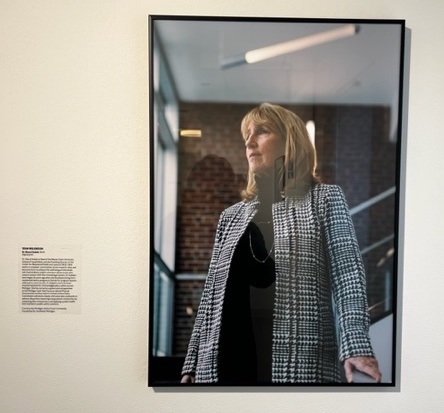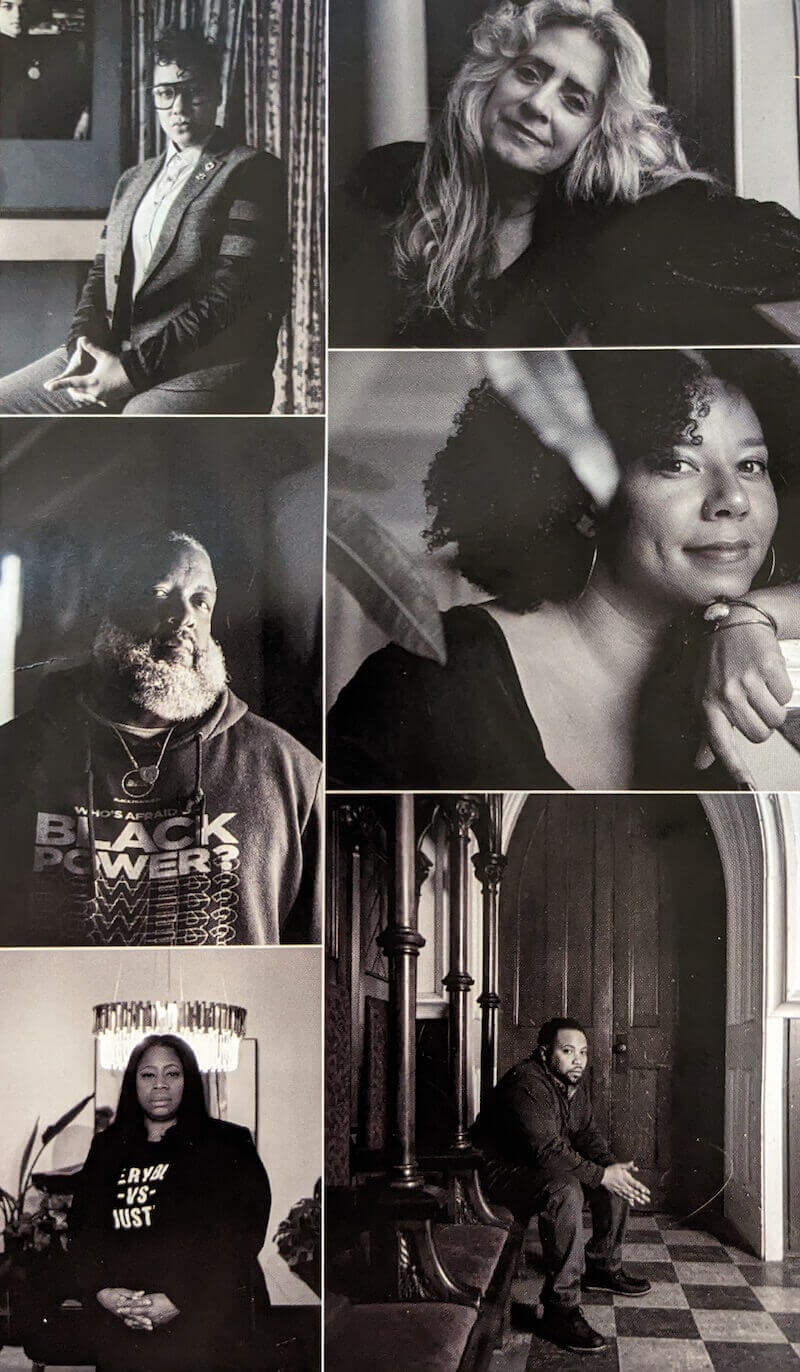Sheryl Kubiak featured in MOCAD exhibit alongside criminal legal reform activists and artists
School of Social Work Dean and Center for Behavioral Health and Justice Founding Director Sheryl Kubiak is among the activists and artists featured in the Free Your Mind: Art and Incarceration in Michigan exhibition, on view at the Museum of Contemporary Art Detroit (MOCAD). The exhibition is presented in partnership with the Michigan Justice Fund and the Eli and Edythe Broad Art Museum.

Working with a coalition of more than a dozen organizations, Free Your Mind showcases the inner worlds of incarcerated individuals to cultivate a better understanding of how incarcerated individuals’ growth is linked to our society’s broader health. The exhibit honors MJF grantees and their “unyielding dedication to power building in communities most impacted by mass incarceration to transform the criminal legal system”, said Ashley Carter and Melanca Clark in exhibition materials. Free Your Mind aims to “stimulate imagination and activate bold, solution driven responses towards creating the most equitable and just world we know is possible.”
 The exhibition centers key topics of inquiry around incarceration in Michigan – length of sentencing and prison overcrowding, the impact on women and youth, and the dangers of COVID-19. Dean Kubiak is honored as dean of the School of Social Work, founding director of the Center for Behavioral Health and Justice, for her history of work with incarcerated women, and her impact on criminal legal policy and data transparency across the state. She is featured alongside an inspiring host of community activists and artists, including Ashley Gordon and Tony Gant of Nation Outside, Amanda Alexander of the Detroit Justice Center, Yusef Shakur of the Michigan Roundtable for Diversity and Inclusion, Monica Jahner of Northwest Initiative A.R.R.O., Mary Heinen McPherson of the Prison Creative Arts Project, Kristine Longstreet of Neighborhood Defender Service, Natalie Holbrook-Combs of American Friends Service Committee, and Nicholas Buckingham of Michigan Liberation.
The exhibition centers key topics of inquiry around incarceration in Michigan – length of sentencing and prison overcrowding, the impact on women and youth, and the dangers of COVID-19. Dean Kubiak is honored as dean of the School of Social Work, founding director of the Center for Behavioral Health and Justice, for her history of work with incarcerated women, and her impact on criminal legal policy and data transparency across the state. She is featured alongside an inspiring host of community activists and artists, including Ashley Gordon and Tony Gant of Nation Outside, Amanda Alexander of the Detroit Justice Center, Yusef Shakur of the Michigan Roundtable for Diversity and Inclusion, Monica Jahner of Northwest Initiative A.R.R.O., Mary Heinen McPherson of the Prison Creative Arts Project, Kristine Longstreet of Neighborhood Defender Service, Natalie Holbrook-Combs of American Friends Service Committee, and Nicholas Buckingham of Michigan Liberation.
“It is such an honor and privilege to be sharing this space with people I hold so much admiration and respect for,” said Kubiak. “I am particularly grateful to Ashley Carter, Melanca Clark and the Michigan Justice Fund for continuing to bring us together to build momentum for change across the state.”
“Art shifts how we see and understand the world around and within us,” reads the exhibit website. “Free Your Mind invites us to consider these qualities of art while also grappling with the effects of the carceral system.”
The exhibition is on view in the Mike Kelly’s Mobile Homestead, located on the MOCAD grounds behind the museum proper until September 3, 2023. The MOCAD operates on a sliding scale or “pay what you can” model for admission, with a suggested donation of $10 to view the exhibits during normal business hours.
About the Center for Behavioral Health and Justice: The Wayne State University School of Social Work Center for Behavioral Health and envisions communities in which research, data, and best practices are used by multiple stakeholders to enhance the optimal well-being of individuals with mental illness and/or substance use disorders who come into contact with the criminal/legal system. Learn more
About the Michigan Justice Fund: The Michigan Justice Fund (MJF), a statewide initiative of the Community Foundation of Southeast Michigan, is a funders’ collaborative that makes investments to stem the flow of individuals into the criminal justice system, supports the investment of pubic dollars to community-driven alternatives to incarceration, and works to ensure that those who are returning home after incarceration receive the support they need to flourish. MJF is comprised of Michigan-based and national funders dedicated to advancing justice reform and the economic mobility of individuals with criminal convictions in Michigan. Learn more